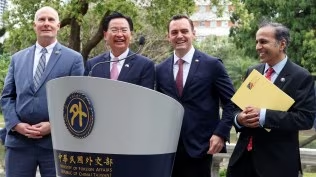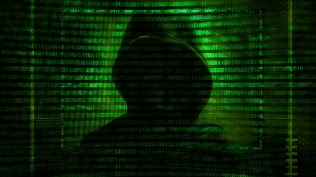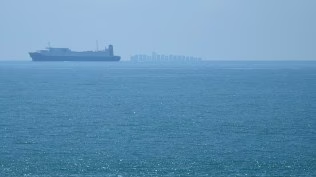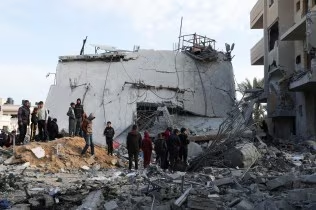Japanese crime boss trafficked nuclear material from Myanmar, US says
A man identified by federal prosecutors as a leader of Japan’s Yakuza organized crime syndicate was charged Wednesday with trafficking uranium and plutonium from Myanmar with the expectation that Iran would use the material to make nuclear weapons.
The man, Takeshi Ebisawa, is accused of conspiring with associates to sell the weapons-grade material and illegal narcotics and to buy surface-to-air missiles and other weapons on behalf of an ethnic insurgent group in Myanmar, the country formerly known as Burma.

“It is impossible to overstate the seriousness of the conduct alleged in today’s indictment,” Damian Williams, the U.S. attorney in Manhattan, said in announcing the charges.
Ebisawa, 60, is being held in a federal jail in Brooklyn after being charged in 2022, along with three co-defendants, with international drug and weapons trafficking crimes. He has pleaded not guilty to those charges. He is scheduled to appear in U.S. District Court in Manhattan on the new charges Thursday.
Evan Lipton, his court-appointed lawyer, declined to comment on the trafficking charges but disputed prosecutors’ characterization of his client as a Japanese crime boss.
“When this case is tried, it will be clear that Mr. Ebisawa is not a leader of any sophisticated criminal syndicate, Yakuza or otherwise,” Lipton said.
The indictment announced Wednesday says the scheme began in early 2020, was captured on a series of telephone and electronic communications and unfolded in the following way:
Ebisawa told an undercover Drug Enforcement Administration agent and a confidential source for the agency in February 2020 that he “had access to a large quantity of nuclear materials that he wished to sell.” At one point, he asked whether the confidential source had a buyer for the uranium, adding that it was “not good for your health.”
Two months later, Ebisawa sent the confidential source pictures of a “dark rocky material with a Geiger counter,” a radiation-measuring device. Later that year, Ebisawa sent the undercover drug enforcement agent similar pictures and what he told the agent were lab analyses indicating the presence of uranium and another radioactive element, thorium.
Responding to Ebisawa’s inquiries, the undercover agent “pretended to agree” to help broker the sale of nuclear materials. The agent said the buyer was an Iranian general, but the person was actually a second confidential source “posing as a general.”
In August 2020, Ebisawa reminded the undercover agent during a recorded call that he had access to uranium and asked whether Iran might buy it. In a follow-up email, the agent said the general was “very interested.”
“How enriched is it,” the agent asked Ebisawa in a subsequent message. “Above 5 percent? They don’t need it for energy.”
“I think so and I hope so,” Ebisawa responded.
In September 2020, he offered to sell 50 metric tons of uranium and thorium for $6.85 million. A week later, he told the undercover agent that he could supply plutonium that would be “better” than uranium for Iran’s purposes.
He added that he did not have a license to sell such materials. The transaction, the agent acknowledged, would be “very quiet and illegal.”
As part of the trafficking scheme, the indictment says, Ebisawa sent the undercover agent a list of weapons he wanted, including surface-to-air missiles and AK-47 assault rifles. He then sent the agent a picture of the leader of an ethnic insurgent group in Myanmar who is an unindicted co-conspirator in the scheme, referring to the person as “No. 1.”
In a follow-up call, Ebisawa said the person was the prospective buyer of the weapons. He then introduced the undercover agent to two other brokers who are also unindicted co-conspirators.
While negotiating the weapons deal in May 2021, Ebisawa asked the undercover agent again whether the Iranian general was still interested in obtaining nuclear materials. The agent said yes.
The next month, Ebisawa shared a picture of what he said was “yellowcake” uranium with the agent and the three unindicted co-conspirators.
The negotiations between Ebisawa and the others continued into February 2022, when two of the unindicted co-conspirators met in Thailand. During the course of the meetings, one of the unindicted co-conspirators showed the undercover agent two vials with a powdery yellow material before taking the vials to an office in Bangkok for safekeeping.
In May 2022, law enforcement personnel searched the Bangkok office and found the material. A U.S. nuclear forensic laboratory examined it and found detectable quantities of uranium, thorium and plutonium.
“The plutonium, if produced in sufficient quantities, would be suitable for use in a nuclear weapon,” the indictment says.
Disclaimer: The copyright of this article belongs to the original author. Reposting this article is solely for the purpose of information dissemination and does not constitute any investment advice. If there is any infringement, please contact us immediately. We will make corrections or deletions as necessary. Thank you.





